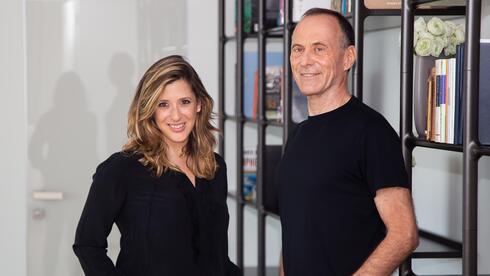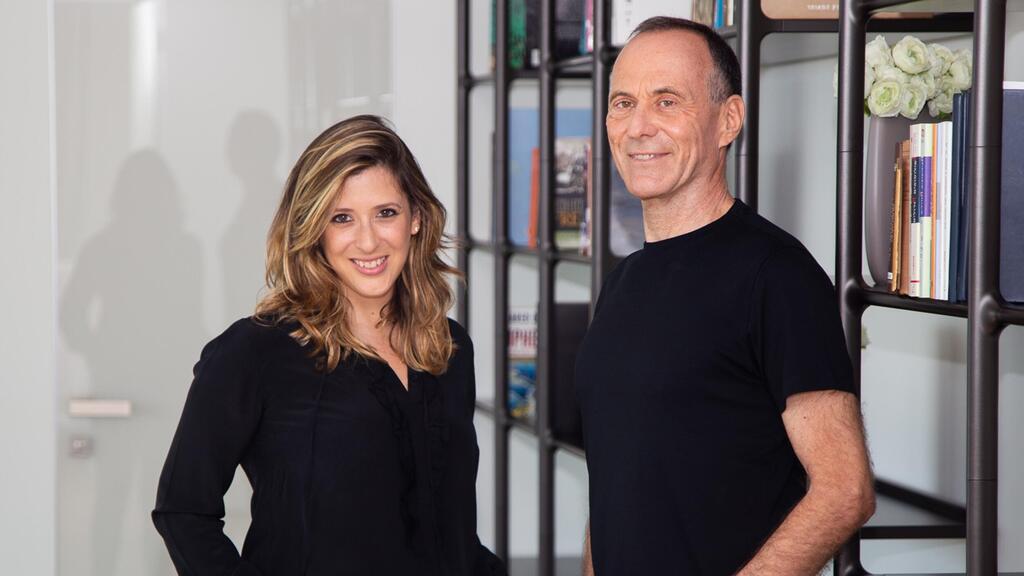
2025 VC Survey
Three key moves for Israel's high-tech acceleration in 2025, according to S Capital
Aya Peterburg, Co-founder and Managing Partner of S Capital, outlines actions the Israeli government should take to boost the tech sector, including education, R&D incentives, and international partnerships.
As part of CTech’s 2025 VC Survey, Aya Peterburg, Co-founder and Managing Partner of S Capital, outlined three areas that she believes the government can do to help high tech and the country’s citizens.
Investing in talent development, enhancing R&D incentives, and facilitating global partnerships are what she thinks will help the sector as Israel recovers from the damage of the war.
“Establishing innovation hubs and funding mechanisms that encourage cross-border partnerships can open new markets and solidify Israel’s role as a global tech leader,” she said.
You can learn more in the interview below.
Fund ID
Name of fund/funds: S Capital
Total sum of the fund: $500M
Partners: Haim Sadger & Aya Peterburg
Notable/select portfolio companies (active): Pecan.ai, SALT Security, Capitolis, Lumana
Notable exits: Run:ai, Lemonade, Oribi, Skyline
2024 is over. How can you summarize it in terms of the Israeli high-tech industry?
2024 was a year of resilience and innovation for the Israeli high-tech industry. Amid ongoing geopolitical challenges, the sector demonstrated remarkable stability and adaptability. Israel solidified its position as a global technology leader, with heightened global interest in its ecosystem.
Looking ahead to 2025 - What challenges and opportunities await the Israeli high-tech sector in the coming year, and how are you, as investors, preparing for them?
Looking ahead to 2025, the Israeli high-tech sector faces a dynamic mix of challenges and opportunities. On one hand, geopolitical tensions and global economic uncertainties may create headwinds, impacting funding availability and cross-border collaborations. On the other hand, advancements in artificial intelligence, defensetech, and cybersecurity offer unparalleled growth potential. Israel’s position as a hub for innovation ensures it remains a key player in shaping these trends.
As investors, we’re focusing on identifying startups with strong fundamentals and scalable technologies in these areas. In this evolving environment, staying adaptable and future-focused will be critical to seizing the opportunities that 2025 presents.
How will new American leadership affect the global high-tech industry or economy? And where does this place Israel and its entrepreneurs?
New American leadership can significantly influence the global high-tech industry and economy through changes in trade policies, investment strategies, and technological priorities. A leadership focused on fostering innovation, promoting tech-friendly policies, and strengthening international collaboration could boost global R&D spending, accelerate advancements in areas like AI, renewable energy, and cybersecurity, and create opportunities for cross-border partnerships.
For Israel and its entrepreneurs, this could be both an opportunity and a challenge. Enhanced U.S.-Israel relations might translate into increased access to funding, joint ventures, and market penetration in the U.S., especially in sectors where Israel excels, such as AI, defensetech, and cybersecurity.
To position themselves advantageously, Israeli entrepreneurs should focus on building strategic alliances with U.S. companies, aligning their innovations with emerging American priorities, and strengthening their presence in global value chains. By leveraging Israel’s reputation as a tech powerhouse and its adaptability to geopolitical shifts, entrepreneurs can ensure they remain integral players in the evolving global economy.
What are the three most important things the Israeli government should do today to accelerate the high-tech engine in the coming year?
Invest in Education and Talent Development: Expand Science, Technology, Engineering, and Mathematics education, promote coding and AI programs in schools, and increase funding for higher education in technology fields. Creating a pipeline of skilled professionals will address the talent shortage and ensure a strong workforce for the high-tech sector.
Enhance R&D Incentives: Increase government grants and tax benefits for R&D projects, particularly in cutting-edge areas like AI, quantum computing, and defense tech. These incentives can attract both domestic and international investments, boosting innovation and global competitiveness.
Facilitate Global Partnerships: Strengthen international trade agreements and promote collaborations between Israeli startups and multinational corporations. Establishing innovation hubs and funding mechanisms that encourage cross-border partnerships can open new markets and solidify Israel’s role as a global tech leader.
Are there new sectors you see as relevant? Are there any fields you anticipate will weaken significantly in the coming year?
Sectors don’t change overnight just because the calendar flips from December 31 to January 1. The usual suspects—AI, defensetech, and cyber—will remain dominant due to their critical and ongoing relevance. Meanwhile, non-differentiated software and traditional hardware may face challenges in a tighter funding environment. The focus should be less on chasing trends and more on deep, sustained opportunities within these key sectors.
Is Israel missing out on the AI revolution in the global arms race? If not, what should the local industry focus on to join the global race?
Not at all. On the contrary, Israel is well-positioned in the global AI arms race, benefiting significantly from the unique connection between its citizens and the armed forces. This close collaboration fosters innovation, rapid prototyping, and real-world application of AI technologies in defense. To maintain its edge, the local industry should focus on enhancing dual-use AI technologies that serve both military and civilian purposes, deepening partnerships with global defense players, and investing in talent and R&D to stay ahead of emerging trends.
Could the global IPO drought end in the coming year?
Predicting the end of the global IPO drought is a task for those who claim to read the future. The IPO market has always been and will continue to be a platform for strong, high-performing companies. While macroeconomic conditions and investor sentiment dictate short-term activity, fundamentally robust businesses with solid growth prospects will always find opportunities to go public, regardless of broader market trends.
From an investor's perspective: will the coming year be better for early-stage startups or more mature companies?
2025 is poised to be a fantastic year for early-stage startups, making it an exciting time for investors to support emerging companies. We are eager to meet the entrepreneurs of 2025 and forge partnerships with them.
Did you raise fund money in 2024 for an existing fund or a new one? What are your expectations regarding this matter for 2025?
No. We are actively investing out of our 3rd fund.
How many investments did you make in 2024, and how does it compare to previous years?
We made three investments in 2024.
Provide an example of an intriguing investment you made in 2024. What sets this company apart, or what is distinctive about its sector?
S Capital's investment in Sola Security reflects a firm conviction in the company's potential to revolutionize the cybersecurity industry. Sola is poised to disrupt traditional approaches and usher in a new era of collaborative security, a vision that aligns with S Capital's strategy of backing transformative companies. Beyond the disruptive technology, the investment is also a bet on the proven leadership of a second-time founder and established cybersecurity veteran. This experienced leadership, combined with Sola's promise to empower a broader community in building a more secure digital future, signals a significant shift in how the world approaches cybersecurity and makes for a compelling investment opportunity
Two notable companies that you think will thrive in 2025.
Company Name: Wing Security
Sector: Cybersecurity
Description of the product/service: Wing’s SaaS Security Posture Management (SSPM) solution delivers continuous visibility, prioritized insights, and automated remediation across the SaaS ecosystem.
Investment amount + total: $26M
Founding Year: 2020
Reasoning why this is their year: With the rapid shift of cyber threats from endpoints to SaaS applications, Wing Security is uniquely positioned to address this growing attack surface. Organizations are increasingly recognizing the need for SSPM and ITDR solutions to proactively manage risks, prevent breaches, and ensure operational continuity. This year marks a tipping point as businesses prioritize SaaS security as a top strategic investment area.
Company Name: WINN.AI
Sector + description of the product/service: Salestech | A Real-Time Meeting Assistant for Salespeople
Investment amount + total: $14M
Founding Year: 2021
Reasoning why this is their year: WINN.AI is starting 2025 with a strong brand, an amazing product and a winning team. WINN’s meeting assistant stands out by offering real-time capabilities that improve sellers’ performance on every call such as note-taking, playbook tracking, battle cards and real-time coaching - and will be releasing more real-time capabilities throughout the year.













